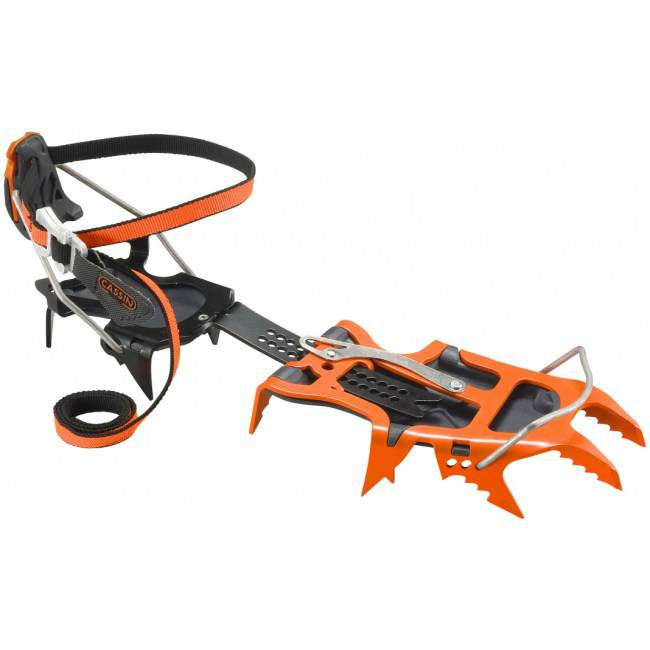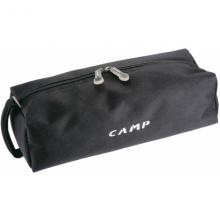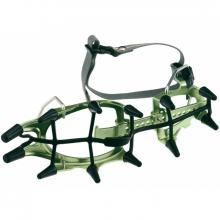Alpinist Pro
Description
- The most advanced alpine ice crampons ever conceived
- Patented heel slide design integrates the benefits of vertical and horizontal frame crampons
- Integrated ice points are optimized for vertical ice and steep, hard snow
- Asymmetric design follows the contours of modern boots to ensure a precise fit
- Delivered standard with automatic and semi-auto toe bails
- Dynamic anti-balling plates included
- Micro-adjustable linking bar for fine-tuning the length
- 3 front bail positions, 2 heel bail positions, 3 heel bail height settings
- Adjustable fold-over carrying case with lashing straps included
The new Alpinist Pro optimizes the benchmark Alpinist crampons for the most technical alpine terrain. Using much of the same technology and innovative design as the Blade Runner crampons, the Alpinist ensures a precise fit with modern boots and extra rigidity in the connection between the heel and toe platforms. This is due to the unique heel slide that integrates the micro-adjustable linking bar with the heel piece for better torsional rigidity. Constructed entirely from chromoly steel for the best energy absorption anywhere the crampons might be stressed. The elimination of connection joints leaves little room for play and reduces much of the flex that can make crampons seem less secure on technical terrain. The sophisticated geometry of the integrated ice points interacts with the secondary points for superior hold in steep, hard snow and vertical ice. The Alpinist Pro is delivered standard with both automatic and semi-auto toe bails for optimal compatibility with boots and conditions. The micro-adjustable linking bar allows fine-tuning of the length. The front bail can be set in three positions for optimally positioning the front points and the heel bail can be set in two positions for different size heel lasts. The heel bail also has three height settings for the most secure attachment with the boot. Dynamic anti-balling plates use a unique design and elastic material to prevent snow build-up underfoot.
Retail price
This Product is Hard to Find.
We don’t know where you can buy this item online in the US. We’ll continue to check all the major retailers and will update this page as soon as we find one.
If you know where to find this online in the US, let us know, and we’ll add the link.
Weight per Pair (g / oz)  Weight per Pair (g / oz)In grams and ounces, the weight of both crampons together, as stated by the manufacturer/brand. If there are differences in weight (due to multiple sizes or optional accessories) we'll note those here. | 960 g / 33.90 oz |
| Ideal Uses | Technical Mountaineering / Alpine Waterfall Ice |
| Binding System | Automatic Semi-auto |
| Sizing | Size (Eur): 36-48 |
| Front Points | Vertical Dual |
| Front Point Offset | No |
| Number of Points | 12 |
| Main Material | Chromoly Steel |
| Wear Indicators | No |
| Anti-Ball Plates | Included |
| Crampon Case | Included |
| Heel Spur Attachment | |
Certification  CertificationsThe main climbing gear certifications are CE and UIAA--and normally the UIAA creates the rules that the CE body also supports. When possible, we try to list all the certifications the product carries. To sell a climbing product in Europe, the device must be CE certified. There are no official requirements to sell climbing gear in the US. The UIAA certification is a voluntary process. Learn MoreRock and Ice Certifications Guide |
|
No reviews yet.
If you know of a good product video that should be here, let us know, and we'll put it up.
If you're looking for gear videos in general, check out our Vimeo and YouTube channels to see the newest gear.





